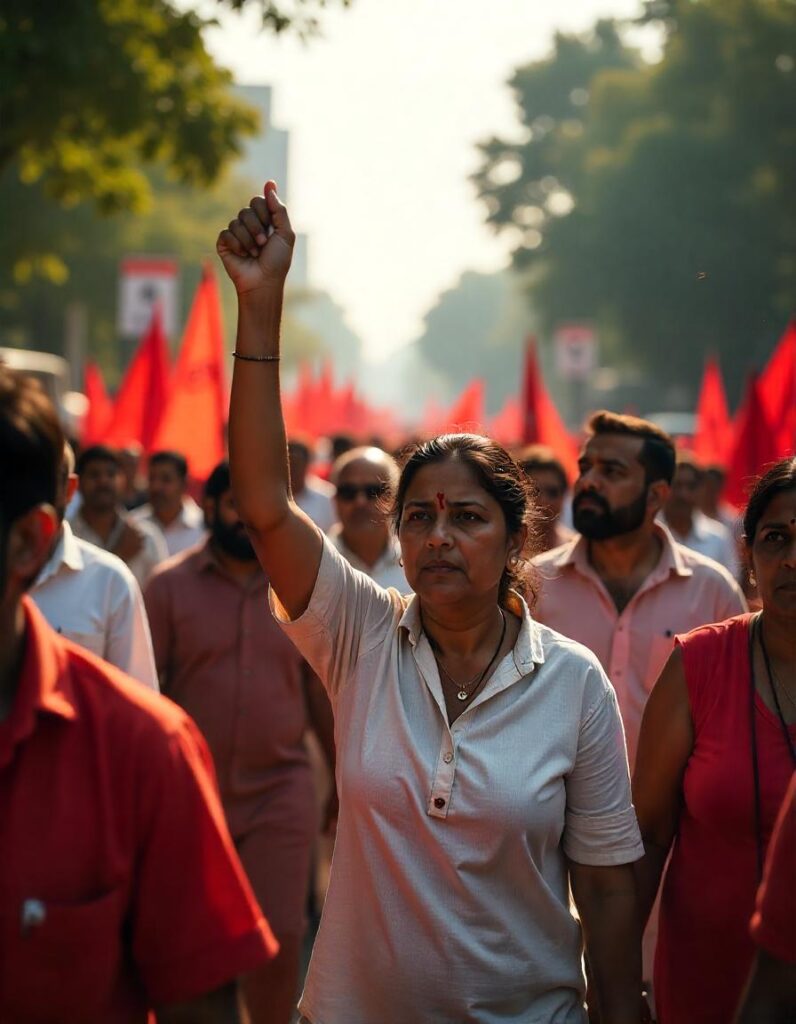The nationwide Bharat Bandh, called by a joint platform of 10 major trade unions, has begun today, July 9, causing disruptions in several parts of the country. The strike is being held in protest against the central government’s new labour codes and privatisation policies. Major cities like Kolkata and Bengaluru are already witnessing disruptions in public transport and services.
According to trade union leaders, the bandh is also aimed at pushing for key demands such as a minimum wage of ₹26,000 and the reintroduction of the old pension scheme (OPS). The unions claim that these demands are essential to protect the rights and welfare of workers across the country.

The strike is expected to see participation from more than 25 crore workers across sectors including banking, insurance, postal, coal mining, highway construction, and agriculture. Both formal and informal sector workers are being mobilised, with planned protests, road blockades, and ‘rail roko’ (rail halts) already underway in several areas.
The ten trade unions leading today’s Bharat Bandh are: Indian National Trade Union Congress (INTUC), All India Trade Union Congress (AITUC), Hind Mazdoor Sabha (HMS), Centre of Indian Trade Unions (CITU), All India United Trade Union Centre (AIUTUC), Trade Union Coordination Centre (TUCC), Self Employed Women’s Association (SEWA), All India Central Council of Trade Unions (AICCTU), Labour Progressive Federation (LPF), and United Trade Union Congress (UTUC).
The union forum has accused the central government of neglecting workers’ voices. It alleges that no annual labour conference has been held for the last 10 years and that the government has unilaterally imposed four labour codes that dilute workers’ rights, weaken collective bargaining, and prioritise corporate interests under the banner of ‘ease of doing business’.
Despite the bandh, schools, banks, colleges, and offices are expected to remain open in most parts of the country. However, public transport services are likely to be hit. Buses, taxis, and app-based cab services may face delays or cancellations as protests continue. Commuters have been advised to plan ahead and prepare for traffic congestion and longer travel times.
The Bharat Bandh has sparked mixed reactions among the public. Supporters argue that the protest is necessary to protect the livelihood and dignity of workers, especially in the face of policies they believe favour corporates. Critics, however, point out that such strikes also bring economic losses, disrupt daily life, and especially hurt small traders and daily wage earners.
As the Bharat Bandh continues through the day, its nationwide impact is being closely watched. The large-scale participation indicates the growing frustration among workers, but whether it will lead to any policy response from the government remains to be seen.
